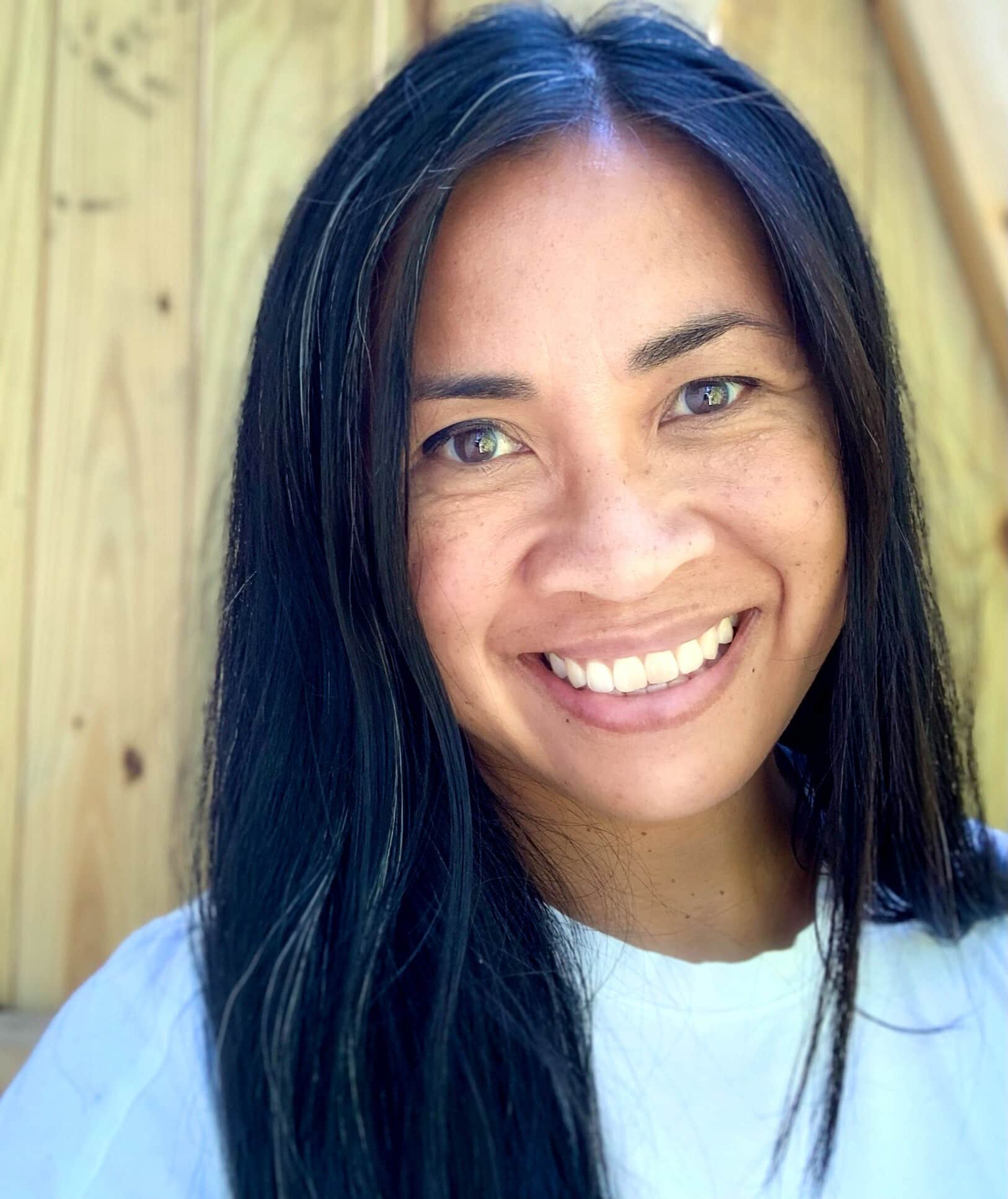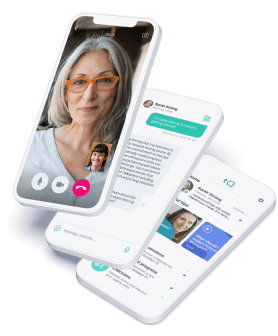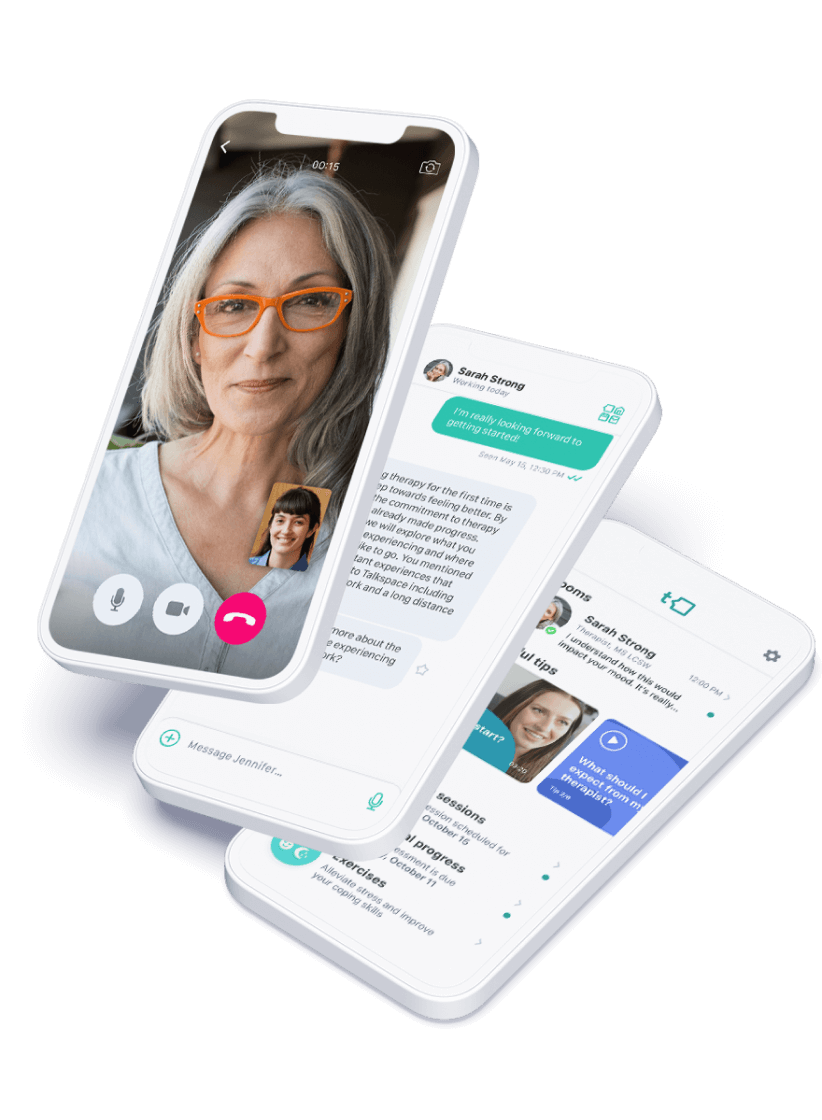Anxiety Disorder
Read Time: 5 MinutesUpdated On: July 24, 2024
Overview
Acupuncture, a cornerstone of traditional Chinese medicine for over 2,500 years, involves the stimulation of specific points on the body, known as acupuncture points, to promote health and healing. By targeting these points, acupuncture aims to regulate the flow of ‘Qi’ (vital energy), which is crucial in maintaining the balance of bodily functions.
While many swear by its effectiveness in treating back, joint, neck, or other types of pain and health conditions, a growing number of people are exploring this ancient treatment for anxiety relief.
While we don’t yet fully understand why or how acupuncture therapy works, it’s worth exploring to learn about its potential efficacy for treating anxiety. Read on as we try to determine if acupuncture treatment is a viable anxiety treatment method.
Does Acupuncture Work for Anxiety?
Although more research still needs to be done, yes, studies show that acupuncture may effectively treat anxiety in some people. According to some research, acupuncture therapy can reduce anxiety symptoms by regulating stress responses and balancing hormone levels so the body can better deal with stress.
“Acupuncture has evolved over thousands of years, but its tenets of stimulating the nervous system remain at the core. The insertion of needles are thought to probe or stimulate hormones, including serotonin and dopamine, offering some pain relief and also regulation of the nervous system.”
Expert Insight
 Licensed Certified Social Worker-Clinical, (LCSW-C), LICSW, MSW Elizabeth Keohan
Licensed Certified Social Worker-Clinical, (LCSW-C), LICSW, MSW Elizabeth Keohan
Benefits of Acupuncture for Anxiety
There are several benefits of acupuncture for anxiety relief. It’s been long touted as an effective and holistic treatment option that can be used alone or in combination with other forms of treatment. Benefits of acupuncture for anxiety might include:
- Promotes relaxation and reduces stress: An acupuncture session might stimulate natural healing mechanisms by increasing the release of endorphins and serotonin, naturally improving happiness.
- Improves sleep quality: Acupuncture has been linked to improved sleep quality, which anxiety is known to disrupt.
- Balances energy flow: Balancing the body’s natural energy flow — or “Qi” — may stabilize mood and reduce nerves.
- Minimal side effects: For those who prefer non-pharmacological, holistic health options, acupuncture has minimal side effects and can be a safe, natural way to treat anxiety symptoms.
- Complementary treatment: When used in combination with other traditional therapeutic modalities, acupuncture might be even more effective in helping manage symptoms of anxiety.
How Effective is Acupuncture for Anxiety?
Acupuncture has shown promising results in treating anxiety. A recent meta-analysis of 20 randomized controlled trials (RCTs) found that acupuncture can significantly reduce anxiety symptoms compared to control groups.
Other studies suggest it can be as or more effective than pharmaceutical treatment. Further research is suggested, but findings like these strongly indicate that acupuncture can be an effective anxiety treatment option that offers physiological and psychological benefits.
Acupuncture Points for Anxiety
Acupuncture points, also known as acupoints, are specific locations on the body that are believed to be energetically connected to various organs and systems. According to traditional Chinese medicine, stimulating these points through acupuncture can help balance the body’s energy flow, known as Qi, and influence the health of the related body systems.
For treating anxiety, acupuncture points are strategically chosen based on individual symptoms. These points are known to help balance energy flow and calm the nervous system, providing relief from anxiety. Some commonly used acupuncture points for anxiety include:
- Yintang: Between the eyebrows, known as the “third eye,” believed to calm the mind and reduce stress.
- Shenmen: The wrist crease on the pinky side promotes a sense of calm and alleviates anxiety and insomnia.
- Pericardium 6: Inner forearm about three finger-widths above the wrist crease, used to relieve anxiety, nausea, and heart palpitations.
- Governing Vessel 20: Crown of the head, believed to uplift the spirit and promote mental clarity.
- Liver 3: The top of the foot, between the big and second toe, helps to relieve stress, anxiety, and anger by promoting the smooth flow of energy.
- Spleen 6: About four finger-widths above the inner ankle bone, used to improve overall emotional well-being and reduce anxiety.
What to Expect in an Acupuncture Session
Most acupuncture sessions are similar. A qualified and experienced practitioner will consult with you to discuss your symptoms, history, and treatment goals.
- Procedure: To begin, you’ll lie comfortably on a traditional treatment table. The acupuncturist will insert very thin, sterile needles into various points of your body.
- Sensation: Despite being needles, the insertion is nearly painless, other than occasionally feeling a slight pinch or mild tingling sensation at the acupuncture point. When the needles are in place, it’s common to feel warm heaviness or a very mild, dull, aching sensation at some of the needle sites. These are common reactions and indicate that energy is flowing.
- Duration: Most acupuncture sessions last around 20 to 40 minutes, during which you are encouraged to relax. Acupuncture rooms are generally calming, with dim lighting and soft music that promotes relaxation.
- Effects: Some people feel immediate relief during and just after sessions, but others might notice more gradual improvements after completing several sessions.
How to Find a Qualified Acupuncturist
Before seeing any healthcare professional, it’s crucial to look at their background and credentials. Doing your due diligence will help you be confident that you’re receiving safe and effective care. There are several ways to ensure you’re seeing an acupuncturist who’s qualified to treat you.
Check their credentials
Acupuncturists must be licensed to practice in most states. You can look up licensure through the National Certification Commission for Acupuncture and Oriental Medicine (NCCAOM) website. It’s important to note that licensure requirements can vary from state to state, though. You should also find out where they were educated and make sure the school is accredited. Finally, you can check for additional certifications, for example a Diplomate of Acupuncture (Dipl. Ac.).
Get a recommendation
Personal referrals are always a good idea if you’re looking for a new provider in any field. Asking someone you trust if they can recommend an acupuncturist they’ve used can be a good starting point.
Inquire about experience and specialties
Ask how long they’ve been in practice and if they specialize in anything, especially if you’re seeking care for a specific health issue, like anxiety or pain management.
Read reviews and testimonials
Online reviews and testimonials provide an excellent opportunity to learn more about an acupuncturist. You can check Yelp, Google, Healthgrades, or even social media.
Acupuncture vs Other Natural Anxiety Treatments
There are several natural treatments for anxiety, and understanding the advantages and limitations of each can help you make the best decision about a holistic approach to anxiety symptoms.
- Acupuncture vs yoga: Both aim to reduce stress and anxiety, although they work through different mechanisms. Acupuncture uses needles to stimulate points on the body that promote relaxation and balance. Yoga combines physical posture, breathing, and meditation to achieve a calm mind.
- Acupuncture vs meditation: Meditation is the practice of being in the moment and focusing on mindfulness and breath patterns. It’s known to help achieve a calm, centered state and can reduce anxiety by decreasing stress hormones. On the other hand, acupuncture can provide more immediate relief for some people.
- Acupuncture vs herbal supplements: Multiple herbal supplements like ashwagandha and magnesium are used to help treat anxiety symptoms. These natural supplements can alter the body’s biochemical pathways to reduce stress. Acupuncture is also a holistic approach, but it can stimulate healing without needing to take anything. It’s also important to note that although they’re not drugs or prescriptions, some herbal supplements have side effects and may interact with other medications, which is generally not a risk with acupuncture.
“Acupuncture was born out of traditional Eastern medicine for the treatment of disease. Yoga and meditation, while also holistic, are both practices that provide balance rather than healing per se. I always remind clients that our brains and bodies are bidirectional and that one support, whether therapy or exercise, is more robustly effective if complemented by other things. Acupuncture does not have to be your only treatment; for example, pursue psychotherapy, but also maintain exercise to acquire your vision of relief.”
Expert Insight
 Licensed Certified Social Worker-Clinical, (LCSW-C), LICSW, MSW Elizabeth Keohan
Licensed Certified Social Worker-Clinical, (LCSW-C), LICSW, MSW Elizabeth Keohan
Take the Next Step Toward Healing
Acupuncture is a non-invasive, holistic potential treatment for anxiety. The practice offers benefits like promoting relaxation, improving sleep quality, and balancing the body’s energy flow.
Using acupuncture for anxiety as part of a holistic approach to treatment can be the first step you take toward healing. In addition to using acupuncture, consider therapy for anxiety in your comprehensive strategy to get control of your anxiety..
Talkspace makes the process easy with accessible professional mental health support from the comfort of your own home. Start healing today with the combined benefits of acupuncture and online therapy.
See References
-
Acupuncture and electroacupuncture for anxiety disorders: A systematic review of the clinical research.
Amorim D, Amado J, Brito I, et al. Complementary Therapies in Clinical Practice. 2018;31:31-37. doi:10.1016/j.ctcp.2018.01.008. Accessed May 22, 2024.
-
Effects of acupuncture on chronic corticosterone-induced depression-like behavior and expression of neuropeptide Y in the rats.
Lee B, Shim I, Lee HJ, Yang Y, Hahm DH. Neuroscience Letters. 2009;453(3):151-156. doi:10.1016/j.neulet.2009.01.076. Accessed May 22, 2024.
-
Acupuncture for Psychiatric Illness: A Literature review.
Samuels N, Gropp C, Singer SR, Oberbaum M. Behavioral Medicine. 2008;34(2):55-64. doi:10.3200/bmed.34.2.55-64. Accessed May 22, 2024.
-
Effectiveness of acupuncture therapy on stress in a large urban college population.
Schroeder S, Burnis J, Denton A, Krasnow A, Raghu TS, Mathis K. Journal of Acupuncture and Meridian Studies. 2017;10(3):165-170. doi:10.1016/j.jams.2017.01.002. Accessed June 27, 2024.
-
Endorphin release: a possible mechanism of acupuncture analgesia.
Peng CHL, Yang MMP, Kok SH, Woo YK. The American Journal of Chinese Medicine. 1978;06(01):57-60. doi:10.1142/s0147291778000083. Accessed June 27, 2024.
-
The effects of acupuncture on serotonin metabolism.
Lee EJ, Warden S. European Journal of Integrative Medicine. 2016;8(4):355-367. doi:10.1016/j.eujim.2016.06.022. Accessed June 27, 2024
-
Acupuncture for treatment of persistent disturbed sleep.
Huang W, Johnson TM, Kutner NG, et al. the Journal of Clinical Psychiatry/the Journal of Clinical Psychiatry. 2018;80(1). doi:10.4088/jcp.18m12235. Accessed June 27, 2024.
-
Acupuncture.
Van Hal M, Dydyk AM, Green MS. StatPearls - NCBI Bookshelf. Published July 24, 2023. Accessed June 27, 2024.
-
Effectiveness of acupuncture on anxiety disorder: a systematic review and meta-analysis of randomised controlled trials.
Yang XY, Yang NB, Huang FF, Ren S, Li ZJ. Annals of General Psychiatry. 2021;20(1). doi:10.1186/s12991-021-00327-5. Accessed May 22, 2024.
-
The use of complementary and alternative medicine (CAM) in psychiatric units in Sweden
Wemrell M, Olsson A, Landgren K. Issues in Mental Health Nursing. 2020;41(10):946-957. doi:10.1080/01612840.2020.1744203. Accessed May 22, 2024.
-
Scalp Acupuncture Treatment Protocol for Anxiety Disorders: a Case Report.
He Y, Chen J, Pan Z, Ying Z. Global Advances in Health and Medicine. 2014;3(4):35-39. doi:10.7453/gahmj.2014.034. Accessed May 22, 2024.
-
Combined use of Shenmen (HT 7) and Sanyinjiao (SP 6) to improve the anxiety and depression in patients with insomnia: a randomized controlled trial
Du L, Song XJ, Li ZW, Liao LX, Zhu YH. PubMed. 2022;42(1):13-17. doi:10.13703/j.0255-2930.20210113-k0002. Accessed May 22, 2024.
-
Effects of acupuncture at neiguan in neural activity of related brain regions: A Resting-State FMRI study in anxiety.
Li C, Wang Y, Li B, Su S. Neuropsychiatric Disease and Treatment. 2022;Volume 18:1375-1384. doi:10.2147/ndt.s368227. Accessed May 22, 2024.
-
A systematic review and meta-analysis of Baihui (GV20)-based scalp acupuncture in experimental ischemic stroke.
Wang WW, Xie CL, Lu L, Zheng GQ. Scientific Reports. 2014;4(1). doi:10.1038/srep03981. Accessed May 22, 2024.
-
The effect of acupressure at third liver point on the anxiety level in patients with primary dysmenorrhea.
Kafaei-Atrian M, Mirbagher-Ajorpaz N, Sarvieh M, Sadat Z, Asghari-Jafarabadi M, Solhi M. Iranian Journal of Nursing and Midwifery Research. 2016;21(2):142. doi:10.4103/1735-9066.178233. Accessed May 22, 2024.
-
The effect of acupressure at spleen 6 acupuncture point on the anxiety level and sedative and analgesics consumption of women during labor: A randomized, single-blind clinical trial.
Samadi P, Alipour Z, Lamyian M. Iranian Journal of Nursing and Midwifery Research. 2018;23(2):87. doi:10.4103/ijnmr.ijnmr_199_16. Accessed May 22, 2024.

Licensed Talkspace Therapist, Elizabeth Keohan has enjoyed working with clients in communities from Washington DC through rural Maine over the course of her career. While she has worked extensively with those experiencing anxiety and depression, she embodies a unique comfort working with the bereaved. Elizabeth combines a compassionate, holistic approach with Cognitive Behavioral Theory (CBT), to help clients counter their somatic response to stress, anxiety, mood, grief and loss.
Related Articles About Anxiety Disorder
View all articles
Overcoming Parental Anxiety: Strategies for a Calmer Mind

15 Effective Coping Skills for Anxiety

Acupuncture for Anxiety: Does it Work?

Does Alcohol Cause Anxiety? Exploring the Connection

Agoraphobia vs Social Anxiety Disorder: What’s the Difference?

13 Best Jobs for People with Social Anxiety

Election Anxiety: How to Cope With Political Stress

Social Anxiety vs Autism: How to Tell the Difference

Anxiety & Fatigue: Exploring Why Anxiety Makes You Tired


